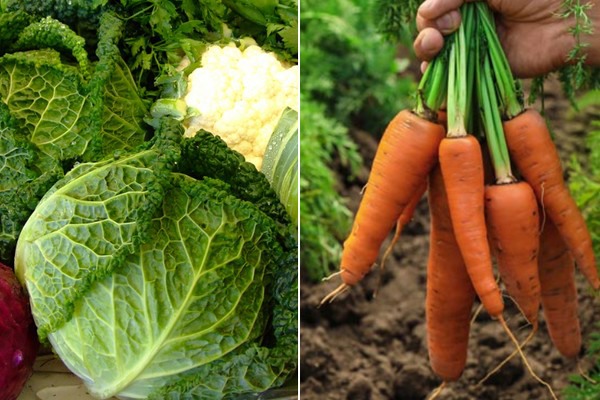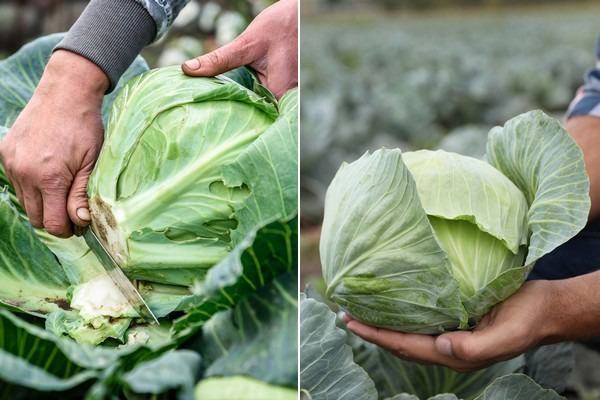The marketing of Dithmarscher white and red cabbages currently presents a varied picture. "Business with the wholesale markets is relatively calm, while the retail trade is actively sourcing climbing goods. Meanwhile, according to the latest information, demand in export business, especially in Scandinavia, is also strongly increasing. Good prices are also being achieved both in the domestic market and in export," says Ralf Gerths, managing director of the eponymous vegetable wholesaler based in Oesterwurth.
Despite the wetness and delayed harvest dates, the availability of goods in the cabbage sector continues. "However, the end of the season for regional savoy cabbage is approaching (approx. 6 weeks). Quality is already somewhat declining, which in turn is due to the fact that the plants have suffered greatly from frost. Here, the retail trade is already gradually switching to goods from Italy." The cold front and sub-zero temperatures have also negatively affected the quality of leeks, Gerths further observes. "Due to the cold, there are currently predominantly white stalks without green leaves. With the current, milder temperatures, the plants will recover somewhat, but this will again take several weeks."
 Celeriac from regional, German cultivation is plentiful and enjoys a good, steady demand. German carrots are expected to approach their end in two/three weeks.
Celeriac from regional, German cultivation is plentiful and enjoys a good, steady demand. German carrots are expected to approach their end in two/three weeks.
Another mainstay of the family business is made up of carrots. "Prices are trending upwards. As far as availability of goods is concerned, weather-related conditions meant that one or two facilities could not be harvested. Until a few weeks ago, we also had crates with more soil than carrots. Fortunately, we currently have quite good qualities. I would classify the sales situation as satisfactory: Since we also want to be able to deliver in the spring, we also hold back goods, i.e., we do not sell forcefully. At present, I assume that we will end the season as usual by mid/end of April. We want this too, because after that it becomes complicated with the storage ability and quality of the goods, while the German stored carrots then also compete directly with newly harvested imports."
Organic cabbage and purchasing restraint
Despite numerous challenges, the vegetable wholesaler looks back on a 'satisfactory year' in 2023. Exclusively for a retail partner, about 100 hectares of organic white and red cabbages could be planted in the 22/23 season. Gerths: "From the producer's point of view, cabbage remains a product with which money can be earned. This not only applies to white and red cabbage, but also to Brussels sprouts, the cultivation area of which has now grown strongly in northern Germany." On the sales side, the purchasing restraint continues to be noticeable. "This is particularly evident in the aforementioned decline in demand at the wholesale markets. The value-added tax was increased back to 19 percent after the pandemic. This, coupled with the already lower purchasing power, means that some can no longer eat out at all, which in turn impacts the quantity required. The weekly markets are also trending downwards."

Risky price speculation with stored cabbages
Experience has shown that in the last sales months of the cabbage season, there is active speculation on price increases. "It happens again and again that farmers hope for good prices shortly before the end of the season and accordingly hold back goods. However, there is a risk that as early as March/April, suddenly so much early vegetables from southern Germany will be available, after which consumers usually prefer these goods instead of storage cabbage, so that demand falls and prices drop. There have been years when people were too greedy and miscalculated," Gerths warns in conclusion.
Pictures: D. Gerths Vegetable Wholesale GmbH.
For more information:
Ralf Gerths
D. Gerths Vegetable Wholesale GmbH
Poppenwurth 18
25764 Oesterwurth
Tel: 04833-45050
Fax: 04833-450518
[email protected]
www.gerths-gemuese.de
